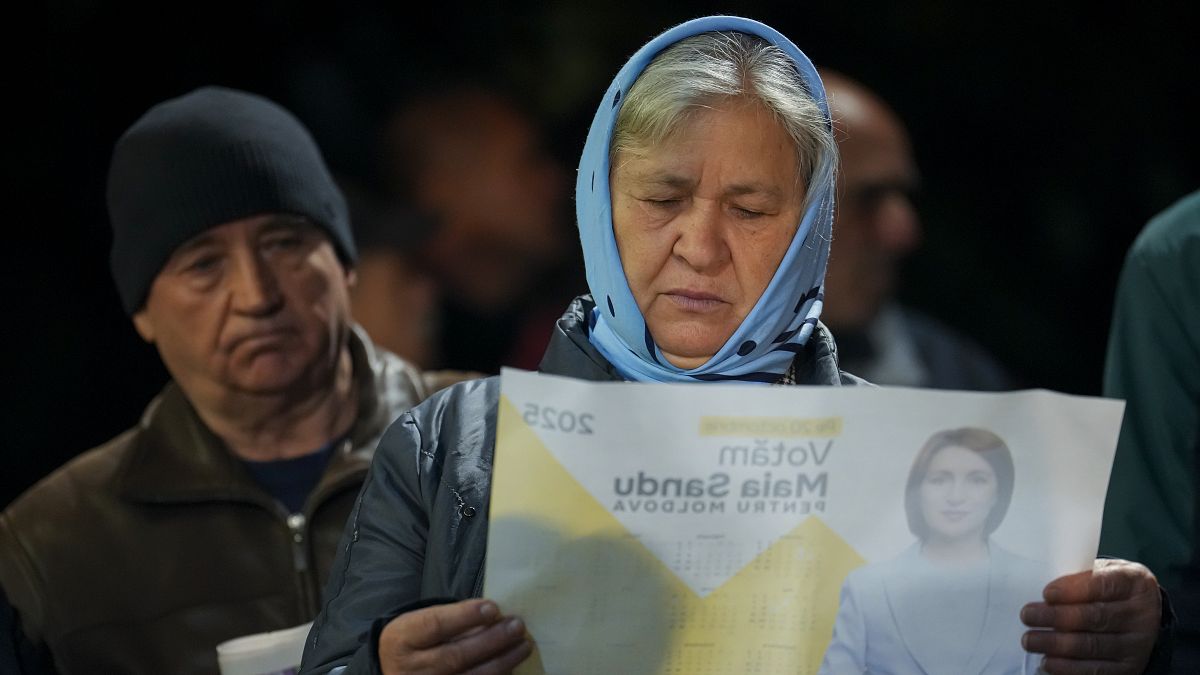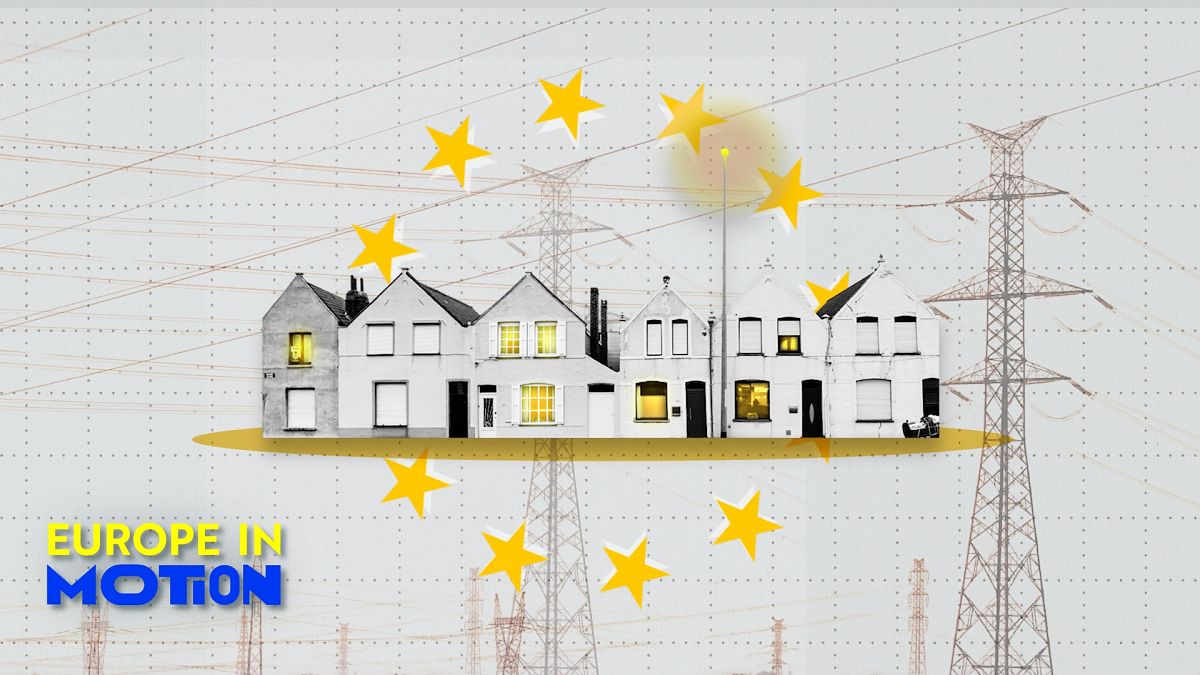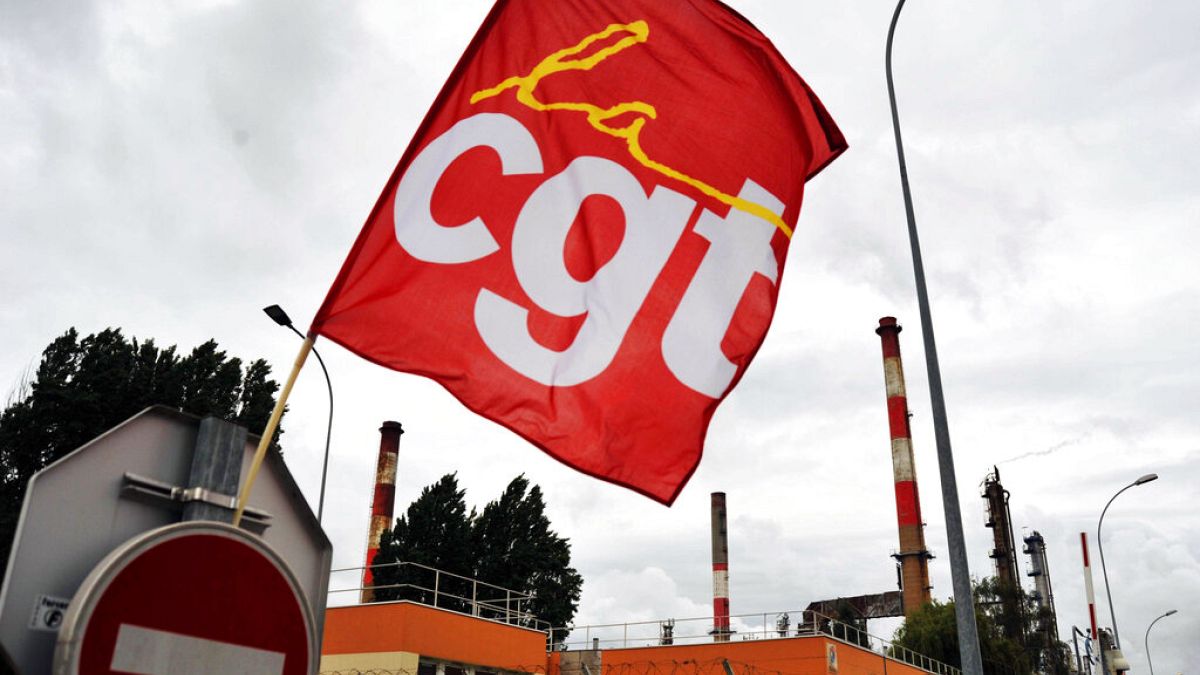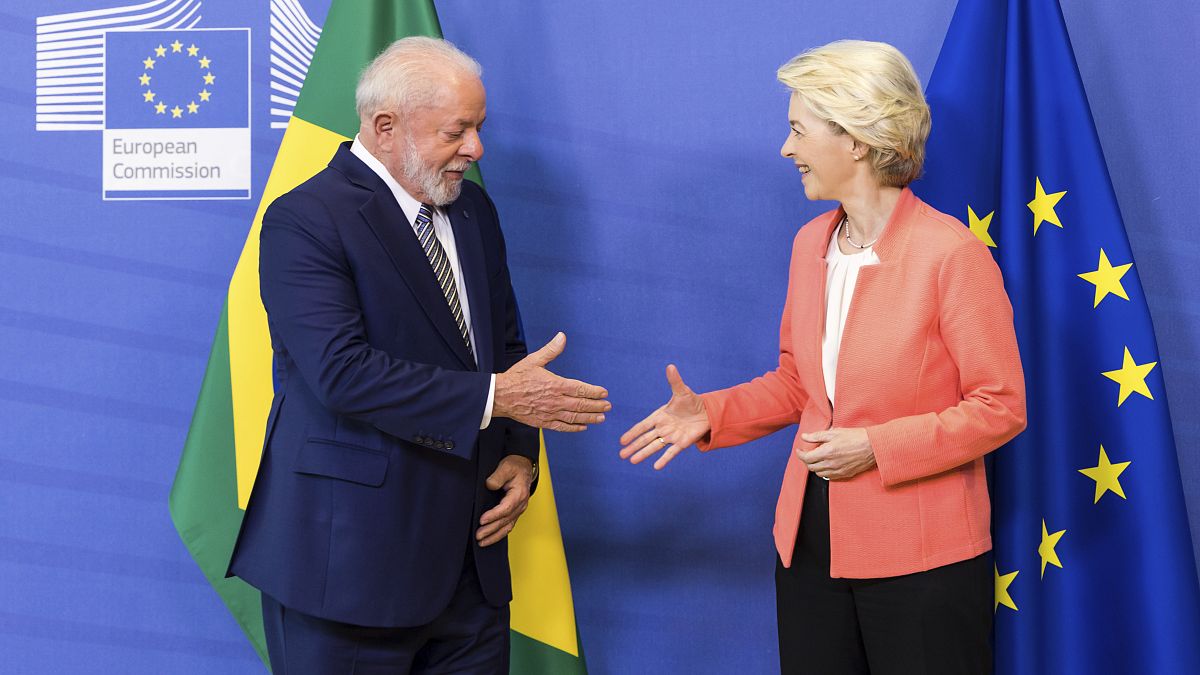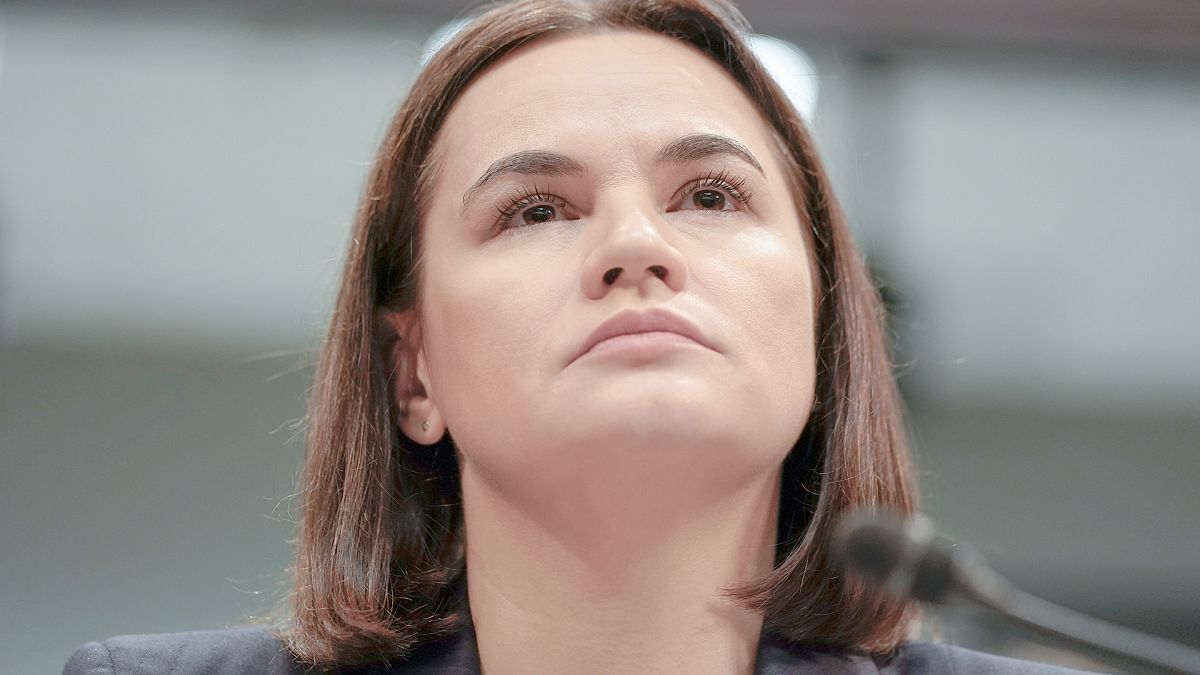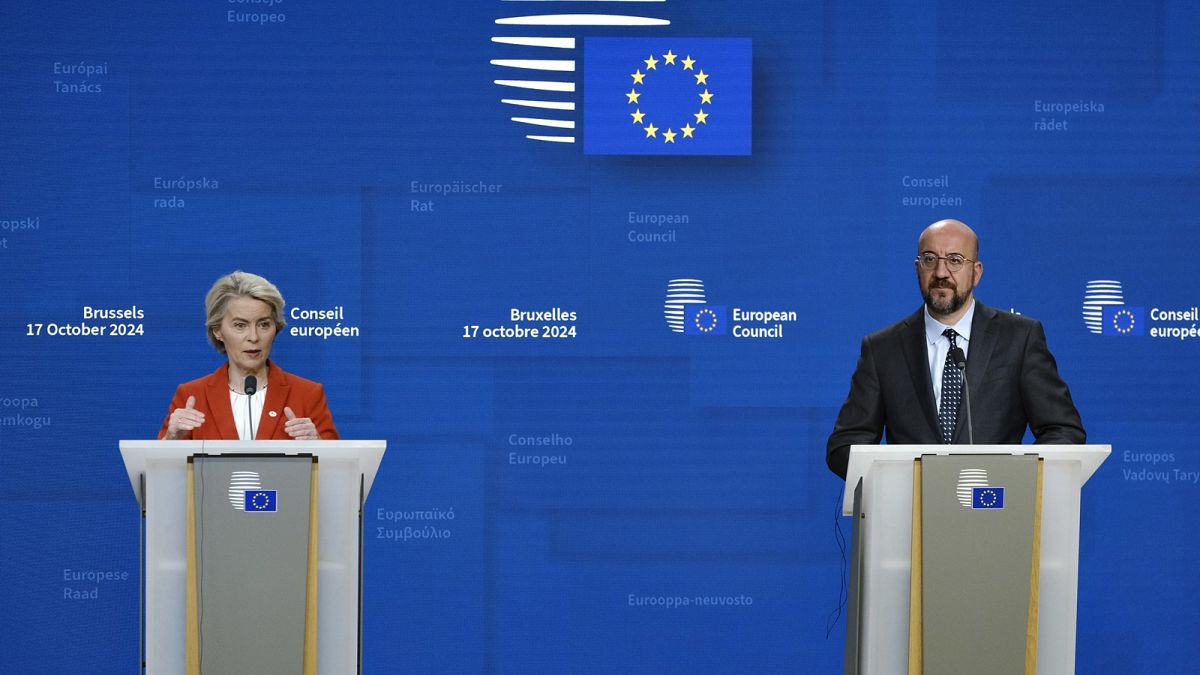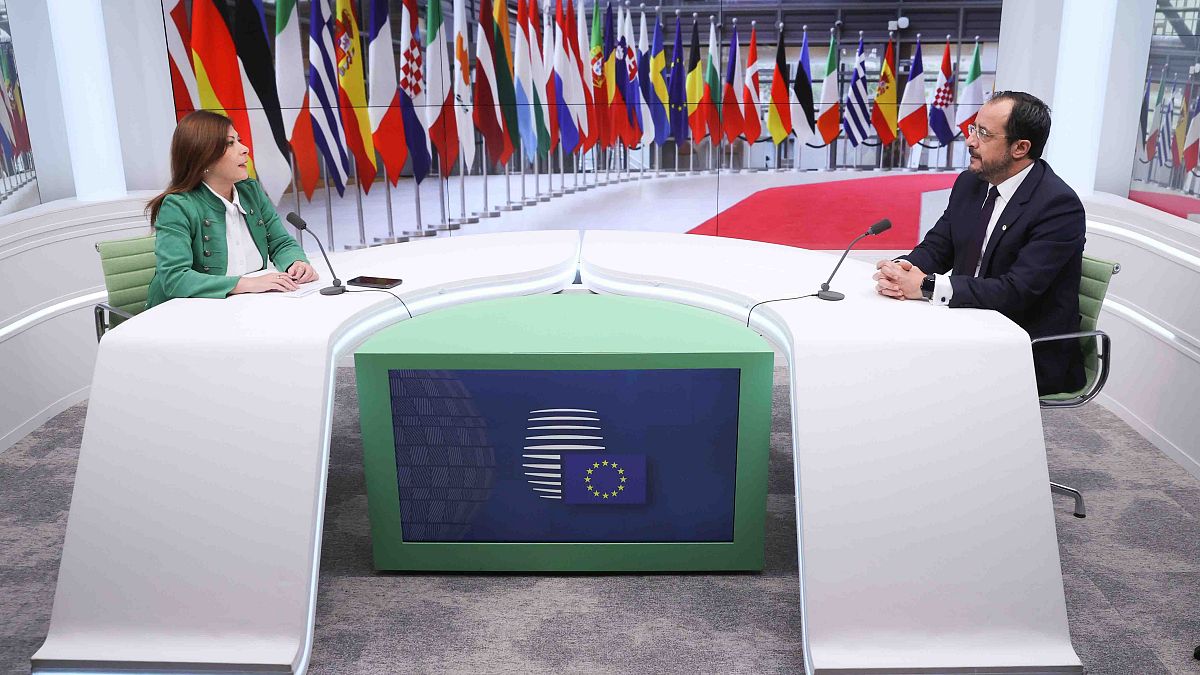Polls put Moldovans’ support for EU membership at around 60% and a turnout of 33% is needed for the referendum to be considered valid, meaning that many Russian-backed campaigns have focused on demobilising voters.
People in Moldova head to the polls on Sunday in a dual vote – to choose their next president and to vote in a referendum on whether the country should join the European Union.
Wherever they sit on the political spectrum, most Moldovans want higher wages and a better quality of life.
However opinion is split on whether joining the EU will provide the bright future supporters of the idea suggest. Some are sceptical that membership will deliver the promised changes while others prefer to maintain a cordial relationship with Russia.
“Nothing good,” said one man in the capital Chișinău when asked by Euronews what his expectations were.
“When in all these years they’ve been doing nothing. And the roads are completely deteriorated. I have not seen anybody doing a well so far, neither the current ones [politcians] nor the others. I don’t see any hope for the future,” he said.
But other Moldovans think that EU membership will improve living standards and raise wages, something that’s prompted many young people to leave the country in search of better salaries elsewhere.
“We all hope that young people would come back to the country, hope for changes for the better here in our country and to make a future here with our children together,” said one Moldovan
“Let’s integrate better, let’s develop better, let’s increase salaries now in the Republic of Moldova – salaries and all that, and do as much as possible for the youth,” said another.
The current minimum wage in Moldova is set at 5,000 leu (€261) making it one of the lowest in Europe.
A recent analysis by the independent think tank Idis Viitorul showed that more than 200,000 Moldovans had left the country in the last four years, a record number.
The data also show that more than 40% of Moldovans living abroad are between 30 and 44 years old. It’s expected that by 2030 the number of Moldovans born abroad will be higher than those born in the country.
“This referendum really does have an existential value for us, for Moldovan citizens, because it will determine civilisational choices for our state and Moldovan society,” said political analyst, Anatol Țăranu.
“We really are Europeans, in the sense that we are joining European civilisation or we continue to remain Soviet and belong to a civilisation that has gone into history.”
Polls put Moldovans’ support for EU membership at around 60%.
A turnout of 33% is needed for the referendum to be considered valid, meaning that many Russian-backed campaigns have focused on demobilising voters.
Election interference
Earlier this month, Moldovan authorities warned that some €14 million in Russian funds had been funnelled directly into the accounts of 130,000 Moldovans in a bid to buy their anti-EU votes.
Pro-Russian oligarch Ilan Shor, known for spearheading the Kremlin’s covert operations in Moldova, has also publicly offered money for votes against EU integration.
Chișinău estimates that Russia has spent as much as €100 million in total to undermine the electoral process, including through coordinated disinformation campaigns designed to sway or suppress the vote.
On Thursday, Moldova’s Prime Minister Dorin Recean advised voters to remain vigilant.
“Lately, destabilisation attempts by criminal groups, controlled from outside, have intensified,” he said.
“It is up to you, dear citizens, to stop the attack on democracy. On Sunday you make the choice: do we go back to the past, alone, without resources for development, vulnerable to challenges, or do we go into the future, into the family of civilised countries?”



